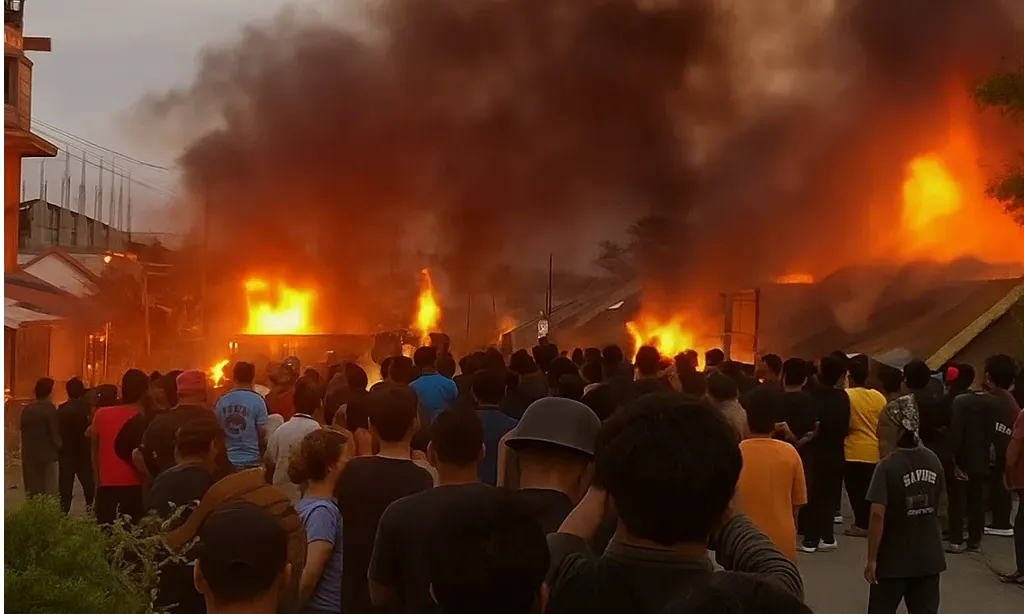The current ethnic clashes in Manipur continue to leave a long humanitarian and political crisis in its wake, more than two years after it broke out in May 2023 for the first time. The conflict—a result of deep-seated communal tensions between the Meitei community and the Kuki-Zo tribal groups—has caused mass displacement, communal riots, and extensive loss of life.
As stated by official reports and international humanitarian statistics, the violence erupted after the Meitei people, who mainly inhabit the Imphal Valley, requested Scheduled Tribe (ST) status, which met fierce resistance from the tribal Kuki-Zo communities within the surrounding hill districts. The state has since been experiencing intermittent fights, burning, and violent clashes, with more than 258 individuals reported killed and over 60,000 displaced, according to Reuters and the Internal Displacement Monitoring Centre (IDMC).
Manipur has been de facto segregated on ethnic lines, with heavily militarised boundaries between Meitei-dominated and Kuki-Zo-populated areas. Districts like Churachandpur, Kangpokpi, and Imphal East have relief camps that still house thousands in temporary and congested conditions, frequently without basic healthcare, sanitation, and mental health services. A 2024 report referenced by AP News found that more than 65% of displaced individuals are suffering from symptoms of post-traumatic stress, especially children and women.
Complicating the war are incursions by armed groups, including ex-fighters who have just returned from the Myanmar civil war and have been trained as combatants, which have allegedly escalated the violence using weapons of military grade. The government has mobilised almost 67,000 troops, including paramilitary forces, to pacify the region. Nevertheless, stray shootings, arson, and ethnic vigilantism still haunt rural and urban areas.
The authorities regularly shut down mobile and internet services in sensitive areas to limit misinformation, but critics say this also interfered with emergency relief coordination and human rights monitoring. Threats and attacks have been faced by several civil society activists and health workers, according to Amnesty International.
Manipur Chief Minister N. Biren Singh made a public apology in late 2024, expressing regret over the mishandling of the situation and calling for tranquillity. Kuki-Zo community leaders, on their part, are demanding self-administrative control under the Indian Constitution due to persisting ethnic discrimination, land insecurity, and state's failure to protect them. The violence has also paralysed the economy of the region, especially in industries such as tourism, education, and small-scale businesses. Official statistics indicate a 90% decline in earnings from tourism, and dozens of schools have been kept closed or destroyed in the affected regions.
As the crisis has reached its third year, experts and aid agencies are calling for the Government of India to start inclusive dialogue for peace, increase formal relief and rehabilitation operations, and conduct impartial investigations of all acts of violence. Long-term stability will involve rebuilding confidence with transparent government, inter-community reconciliation, and socio-economic assistance to displaced families.
If not addressed, the conflict in Manipur has the potential to deepen fault lines not just in the state but even throughout the Northeast region, potentially jeopardising India's larger agenda of national integration, regional stability, and protection of minority rights.
